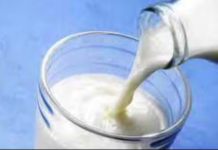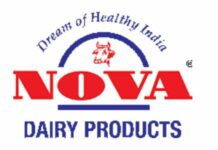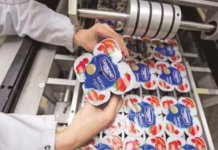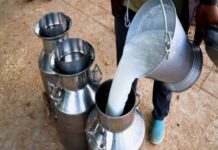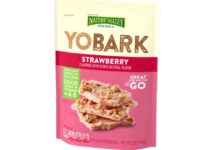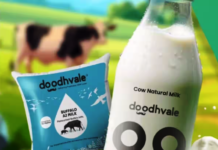America’s team of certified cheese graders are on the front line making sure your cheddar makes the grade.
New Delhi, May 24, 2017: The cheese counter: It may be the best section of the entire grocery store. But how does that wondrous staple that tops everything from pasta to burgers to desserts get there? It’s passed by America’s certified cheese graders. These licensed taste testers are behind the scenes, evaluating flavor, color, texture, and appearance, ensuring that the cheese passes muster. Virtually every company that makes cheese employs cheese graders as does the government to enforce quality standards. However, the only cheeses held to USDA regulatory grade standards are Cheddar, Colby, Monterey Jack, Muenster, Swiss, and Brick.
Eating cheese all day does sounds like the ideal job description, but what does it actually take become a professional cheese taster? First of all, you have to be absolutely enamored with dairy.
“You really have to love cheese to do this job, you have to have a passion for it,” says Dean Sommer, a cheese and food technologist for the Center for Dairy Research at the University of Wisconsin-Madison, who, in his 30 years evaluating cheese, has worked closely Wisconsin Department of Agriculture cheese graders.
“There are no two pieces of cheese that are exactly identical. You could make 50 batches of cheddar a day and no two batches will be identical,” Sommer explains.
He says that you have to be able to detect the smallest nuances between cheeses in order to grade their quality.
Here’s how their process works: If a grader is looking for defects in the cheese, he’ll give a batch any of the following grades: P (pronounced; meaning the cheese is severely defective), D (there are “definite” defects), S (slight), and VS (very slight).
There are also a series of industry scores: AA, A, B (these are usually used as ingredient cheeses), and U – the very worst cheese, which becomes processed cheese like you might find in Cheez Whiz.
Graders also have to look into a cheese’s future.
“One of the expectations for the cheese grader is that they’ll be able to predict which cheeses will go to which ‘aging programs,’” says Sommer.
That means that they have to decide, when a cheese is just two or three weeks old, if it will hold up for a year or longer.
Then comes the fun part: Tasting. But graders still have to be very precise.
“Take cheddar, for example: It should have a slight amount of acid, it should be salty, and have little sulfur notes. It shouldn’t be bitter, or taste like cattle feed, oniony garlicky, or sour,” Sommer explains. “For parmesan, you’re looking for fruity flavors and sweet flavors, what a roasted piece of pineapple tastes like. Just a hint of nuttiness and saltiness.”
Graders should be able to determine which batches will be best served as an ingredient cheese in a dish like pizza, and those that will be “chunked” and end up in the supermarket.
“A grader at Sargento has to decide which cheese will be bars, shredded, or sliced. The cheese has to be almost perfect if you want to slice it,” he says.
Problem batches go to shredding because it masks any imperfections in the cheese.
Graders even judge the appearance of the cheese, and the way it feels.
“Some cheeses, like cheddar, should be pliable. Does it crack easily like an aged cheddar should?” If it’s Swiss, does it have the right amount of eyes, and are they the right shape?” Graders have to answer the questions you’ve probably never even considered about the state of your cheese.
So what does all this information mean for you next time you’re ready to buy cheese.
Sommer assures me that AA cheeses do make it into grocery stores. But there’s a catch. Branded products – like Tillamook and Cabot – are most likely to receive the high grade. Bars of the store brand stuff? Not so much.
Now you know to be thankful next time you’re strolling the aisles at the supermarket: Somewhere down the line, at a farm or in a factory, there’s a person sniffing, squeezing, and tasting your cheese – all in the name of a more perfect dairy product. Rest assured, your cheese is safe in their capable hands.





